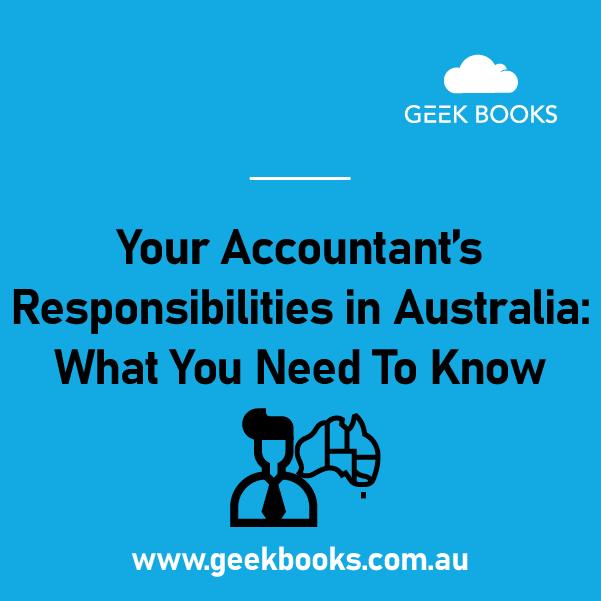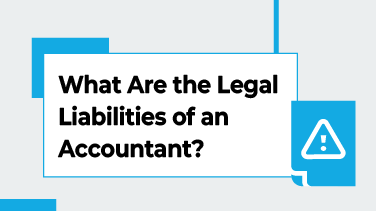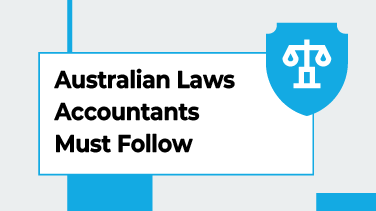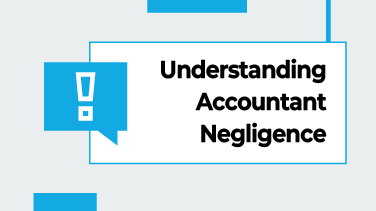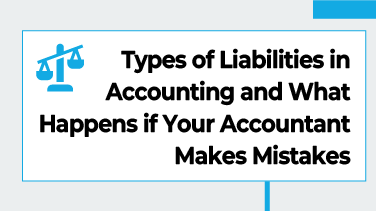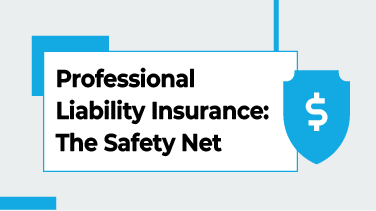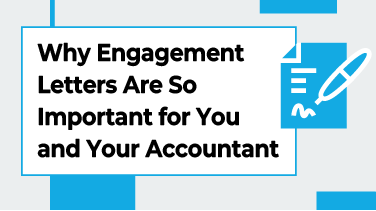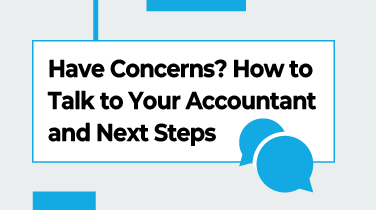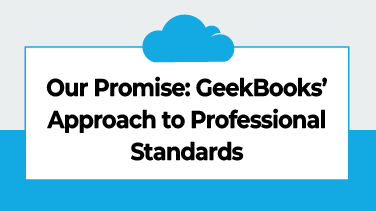When you hire an accountant, you’re trusting them with decisions that can impact your finances, business, and future.
Whether managing your tax returns, advising on compliance, or helping your business stay financially healthy, their role is a big one and comes with serious responsibility.
What are the legal liabilities of an accountant?
In this guide, you’ll get a straightforward overview of what accountants in Australia are legally required to do, where their liabilities lie, and what that means for you as a client.
Please keep in mind that this guide offers general information only.
For advice tailored to your situation, speak with a qualified accounting or legal professional.
What Are the Legal Liabilities of an Accountant? Contracts, Care, and Professional Rules
The relationship between you and an accountant typically starts with a written agreement, often called an “engagement letter”.
This document outlines the scope of the accountant’s services.
If they fail to deliver on those agreed services, it could be considered a breach of contract.
That means you may have grounds to take legal action, especially if the failure causes financial loss.
Accountants have a legal duty to act with the reasonable skill, care, and diligence expected of a competent professional in their field.
If they provide negligent advice or make serious errors leading to loss, you may have the right to pursue damages under common law.
Accountants in Australia must follow strict ethical and professional guidelines set by leading industry bodies like the Institute of Public Accountants (IPA), Chartered Accountants Australia and New Zealand (CAANZ), and Certified Practising Accountants (CPA) Australia.
They must also comply with the Accounting Professional and Ethical Standards Board (APESB), which outlines expectations for integrity, confidentiality, and professional behaviour.
Australian Laws Accountants Must Follow
Tax
If an accountant provides tax advice, prepares tax returns, or lodges BAS statements, they must be registered under the Tax Agent Services Act 2009 (TASA).
This law ensures that only qualified professionals offer tax services for a fee.
Under TASA, registered tax and BAS agents must
- Meet strict education and experience requirements.
- Follow the Code of Professional Conduct, which covers integrity, objectivity, confidentiality, and competence.
- Maintain proper staff supervision and implement systems to check the quality and accuracy of work done.
- Avoid misleading clients or acting outside their scope of registration.
Corporate
Accountants working with companies must comply with the Corporations Act 2001, which governs financial reporting, auditing, and corporate conduct in Australia.
Their key responsibilities include
- Preparing financial reports that comply with Australian Accounting Standards.
- Supporting directors in meeting their financial reporting obligations.
- Ensuring reports give an accurate and fair view of the company’s financial position.
- Lodging financial statements with ASIC (Australian Securities and Investments Commission) when required (e.g., for large proprietary companies, public companies, and certain foreign-controlled entities).
Consumer
Accountants providing services to individuals or businesses must follow the Australian Consumer Law (ACL), which is part of the Competition and Consumer Act 2010.
Under the ACL, accountants must
- Avoid misleading or deceptive conduct (e.g., overstating qualifications or outcomes).
- Provide services with due care and skill.
- Honour consumer guarantees, including the right to remedies if services are defective.
Understanding Accountant Negligence
In accounting, negligence means your accountant did not do their job to the standard expected of them, and that failure caused you financial harm.
To prove accounting negligence, you generally need to show three things:
- Your accountant owed you a duty of care because you had a formal engagement or relied on their professional advice.
- They breached that duty, failing to act with the skill, care, or diligence expected of a competent accountant.
- You suffered a financial loss as a direct result of their mistake.
Examples of possible negligence include
- Incorrectly calculating your tax obligations, leading to ATO penalties.
- Missing serious financial red flags that were part of their agreed scope of work.
- Giving advice that was clearly incorrect and caused avoidable financial damage.
Not every error is grounds for a negligence claim, but you may have legal options if the mistake was avoidable, serious, and costly.
Types of Liabilities in Accounting and What Happens if Your Accountant Makes Mistakes
| Liability | Effect on Accountants | Effect on Individuals | Effect on Businesses |
| Civil | The client can sue to recover financial losses resulting from the accountant’s mistake or negligence. | Lost personal savings or overpaid tax due to incorrect advice or filings. | Cash flow issues, compliance breaches, and missed opportunities. |
| Regulatory | Warnings, enforceable undertakings, suspension, or deregistration from the TPB. ASIC action for breaches of the Corporations Act. | ATO delays, re-lodgement issues, and stress finding another accountant. | BAS/tax reporting delays, increased compliance costs, and legal exposure. |
| Professional | CPA Australia, CAANZ, or IPA may impose fines, suspend membership, or expel them from the professional body. | The need to pause or reassess financial plans if your accountant is suspended. | Your team may be left without a key advisor, disrupting financial management. |
| Reputational | Lost client trust, public criticism, and a struggle to attract or retain business. | If you’re a company director, self-employed, or a public figure, your accountant’s mistakes can damage your credibility with clients, lenders, and the public. | Bad financial advice or reporting errors can hurt your business’s reputation with investors, lenders, and clients, especially if issues become public or affect your compliance record. |
Professional Liability Insurance: The Safety Net
Professional Indemnity (PI) insurance protects both accountants and their clients, covering legal costs, settlements, and compensation when a client suffers financial loss due to an accountant’s negligent advice, errors, or omissions.
PI insurance is a legal requirement for accountants registered with the Tax Practitioners Board (TPB), including tax and BAS agents.
Most professional accounting bodies also make having PI insurance a condition of membership.
Why Engagement Letters Are So Important for You and Your Accountant
Before an accountant commences working for you, they will send you an engagement letter.
It should clearly outline
- The scope of work (what they will and won’t do).
- Each party’s responsibilities.
- Fees and billing arrangements.
- Any limits to the accountant’s legal liability.
This document helps prevent confusion, missed expectations, and disputes.
Take the time to read it carefully.
If anything isn’t clear, ask questions before signing.
A strong engagement letter protects you and your accountant and sets the tone for a more confident, professional working relationship.
Have Concerns? How to Talk to Your Accountant and Next Steps
If you’re worried your accountant has made a serious mistake, start by having a conversation.
What feels like negligence might be a simple misunderstanding, and a direct, honest chat can clear things up.
Next, review your engagement letter.
Double-check what services were agreed on, what responsibilities your accountant accepted, and whether the issue falls inside or outside that scope.
If matters still aren’t resolved, ask about their complaints process.
Many accounting firms have an internal system for handling concerns.
Alternatively, contact their professional body.
CPA Australia, CAANZ, or the IPA can investigate misconduct.
You can also reach out to the TPB if your accountant is registered and has breached the Code of Professional Conduct.
Finally, consider independent legal advice if you’ve suffered financial loss and want to understand your options for compensation.
Our Promise: GeekBooks’ Approach to Professional Standards
What are the legal liabilities of an accountant?
To handle your finances with integrity, accuracy, and accountability.
At GeekBooks, we take this responsibility seriously, and it shows in how we work.
Our team includes fully qualified professionals who are members of CPA and CAANZ: accountants, tax agents, and BAS agents.
We’re backed by the required Professional Indemnity insurance, we provide every client with a clear engagement letter upfront, and we follow the TASA Code of Conduct and the highest ethical standards set by our industry.
We also invest in ongoing training and strong internal systems, so nothing slips through the cracks.
Trust your finances to experts who will treat them like their own.
Contact us today by completing this online booking form or calling 02 9158 3591.
FAQs About “What Are the Legal Liabilities of an Accountant?”
What Are the Liabilities of an Accountant?
Liabilities in accounting include negligence, breach of contract, and misconduct.
If an accountant provides incorrect advice, makes serious errors, or fails to meet professional accounting standards, they may face lawsuits, regulatory penalties, disciplinary action, or financial claims from clients.
Can I Sue My Accountant for Negligence in Australia?
If your accountant breached their duty of care and you suffered financial loss as a direct result, you may have grounds to sue for professional negligence under Australian law.
What To Do if Your Accountant Has Given You Bad Advice or Made a Mistake?
Discuss the issue directly with your accountant; it may be a simple misunderstanding.
If the issue is unresolved, review your engagement letter, ask about their complaints process, and consider contacting their professional body or seeking legal advice.


